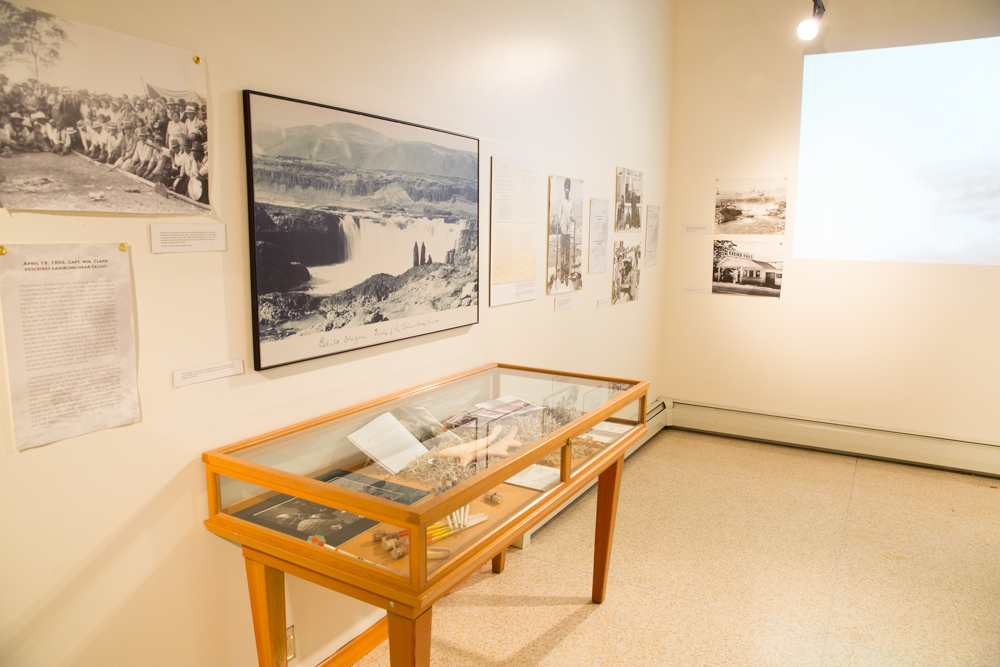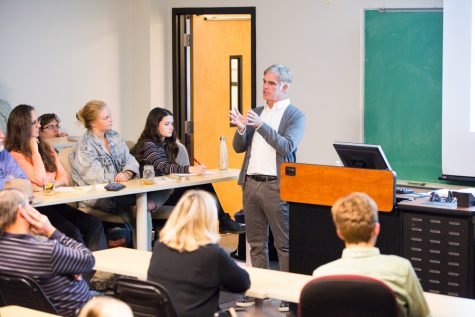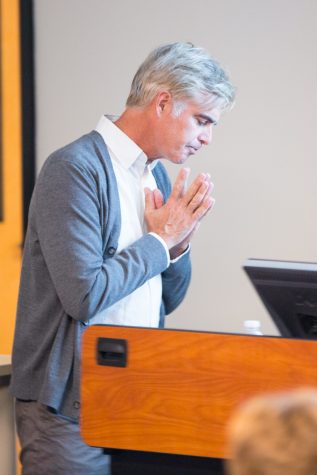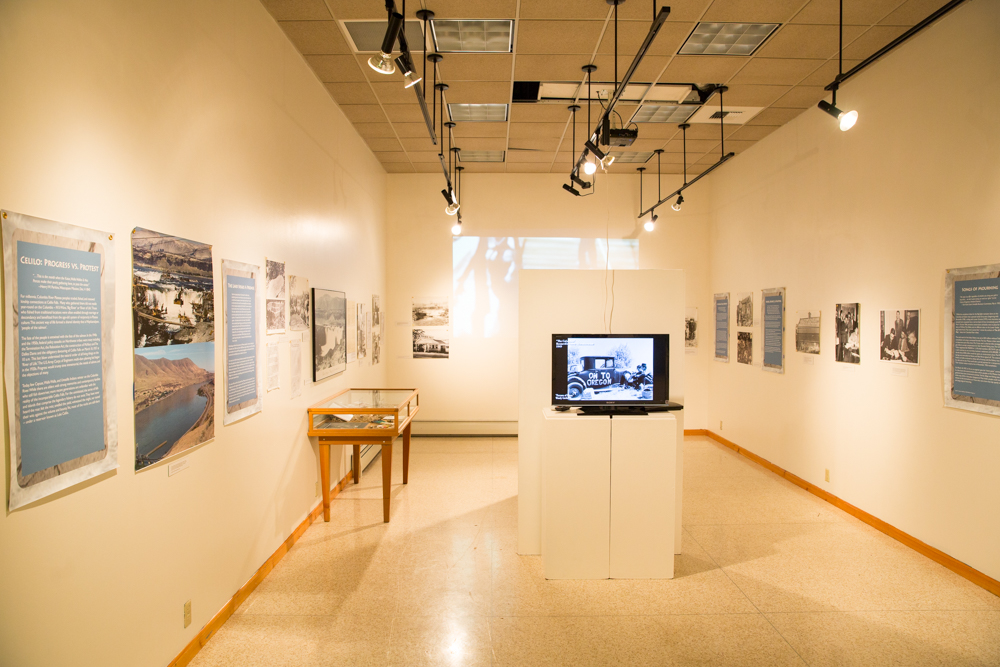“Celilo: Progress Versus Protest” Opens in Maxey Museum
September 28, 2017
The new exhibit in the Maxey Museum, “Celilo: Progress Versus Protest,” shines light on marginalized voices of American history. Curated by the staff at Tamástslikt Cultural Institute in Pendleton, Oregon, the exhibit illustrates the ramifications of the Dalles Dam on Native American tribes of the Columbia River.

The exhibit includes videos, photography, artifacts and detailed descriptions of Native Americans in the area, as well as the construction of the Dalles Dam. It focuses on the Yakama, Nez Perce, Umatilla and Warm Springs tribes who reserved treaty rights to fish in Celilo Falls, but lost them after the dam was built. Despite opposition by biologists, sport and commercial fishermen, citizens, congressmen and Native Americans, the dam was built in the name of Western progress. The federally-controlled project neglected the narratives of indigenous peoples. As a result, Native Americans lost a cultural and spiritual hub where members gathered to fish, trade, share stories and celebrate their heritage.
“Celilo: Progress Versus Protest” arrived at Whitman College vis-à-vis Stan Thayne, Visiting Assistant Professor of Anthropology and Religion. He visited the temporary exhibit when it displayed in Tamástslikt Cultural Institute and felt it was significant to his course “The Politics of Salmon,” and the greater history of Walla Walla.

“Dams don’t last forever,” Thayne said. “They eventually have to be replaced either with a new dam or something else. Unless we know this history, I don’t think we can imagine what this ‘something else’ would be.”
An important contributor to the exhibit is Libby Miller, Adjunct Assistant Professor of General Studies and the Interim Exhibitions and Collections Manager of the Maxey Museum. Miller helped communicate with the staff at Tamástslikt Cultural Institute about displaying their exhibit in the Maxey Museum space.
“There is a real responsibility that falls on the Maxey Museum to engage in responsible and ethical ways with the history of this region,” Miller said. “In particular, to being in conversation with the Tamástslikt about how the history of this region is talked about.”
“Celilo: Progress Versus Protest” is a tribute to the memorandum of understanding signed between Whitman College and the Confederated Tribes of the Umatilla Indian Reservation (CTUIR) on May 19, 2017. The agreement signifies a collaboration to develop Native American curricula on campus through means such as student recruitment, retention and academics. Told through the perspective of those who suffered the most, the exhibit also challenges the meaning of progress.
“Maybe beyond the local specific history, it is an exhibit that can complicate the notion of progress,” Miller said. “It shows that these kinds of great works, like dams, have been historically represented as being for the public good. There is a very specific definition of what ‘public’ means there. And that public doesn’t encompass everyone, and in this case it doesn’t encompass the indigenous peoples of the area,”

On September 20, the day the exhibit opened, Whitman College also welcomed Benedict J. Colombi, a Visiting Educator from the University of Arizona Environmental Studies Department. His lecture discussed the relationship between indigenous peoples and salmon in the North Pacific area. He also addressed the deep-rooted relationship Native Americans have with nature in general.
“There is a strong attachment to the land,” Colombi said. “Moreover, there is a responsibility to care for it, a sort of deep stewardship.”
This sense of stewardship is reflected in the way the exhibit displays a sense of resilience that Native Americans possess in the face of obstacles. Despite the government’s repeated violation of their rights as a sovereign nation, Native Americans persevere to fight for the survival of their people.
“I think the survival of these people is tied directly to the survival of the salmon,” Colombi said. “And that is not some sort of latter-day romanticism. It really is true. I also think there are examples of how tribes have persisted in the face of change and difficulties. These people are resilient,”
Thanks to the staff at Tamástslikt Cultural Institute, the Office of the Provost and Dean of the Faculty, “Celilo: Progress Versus Protest” will be displayed in the Maxey Museum for the fall semester ‘17.






